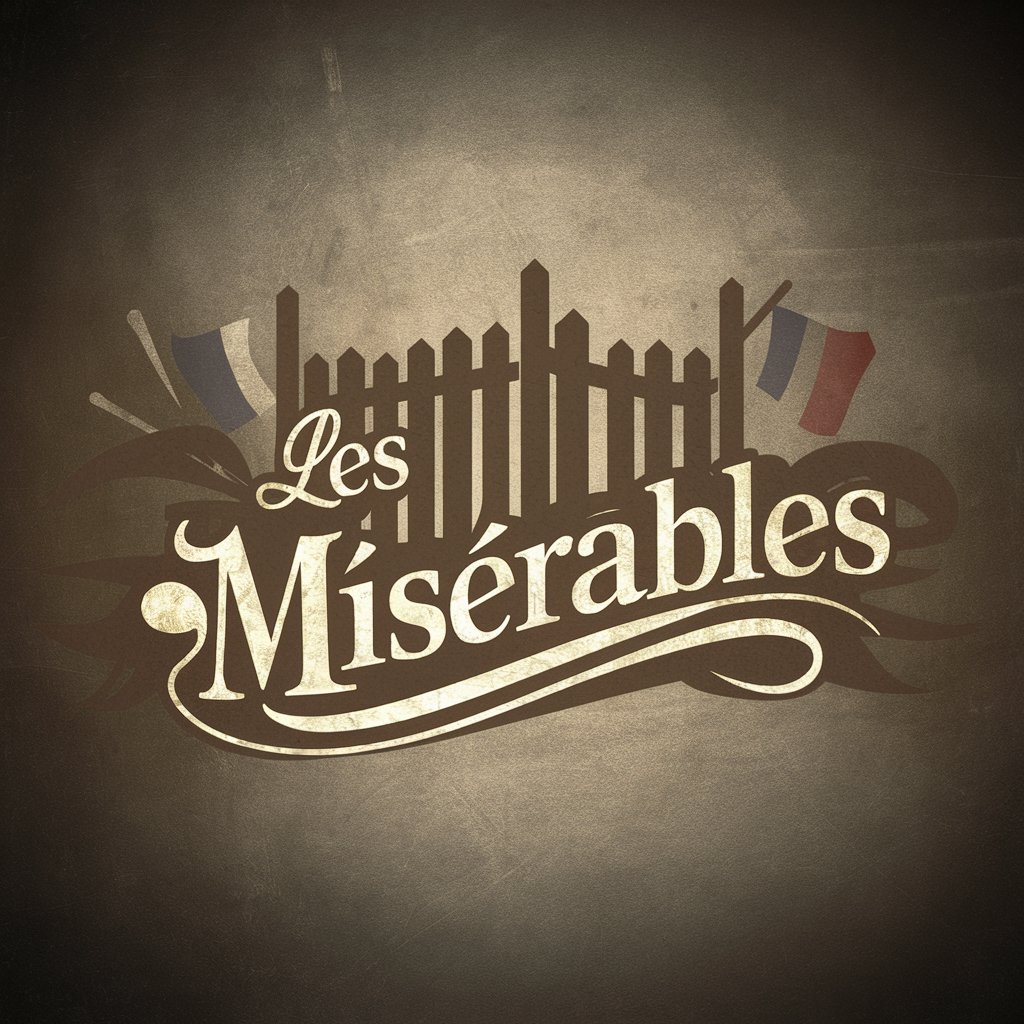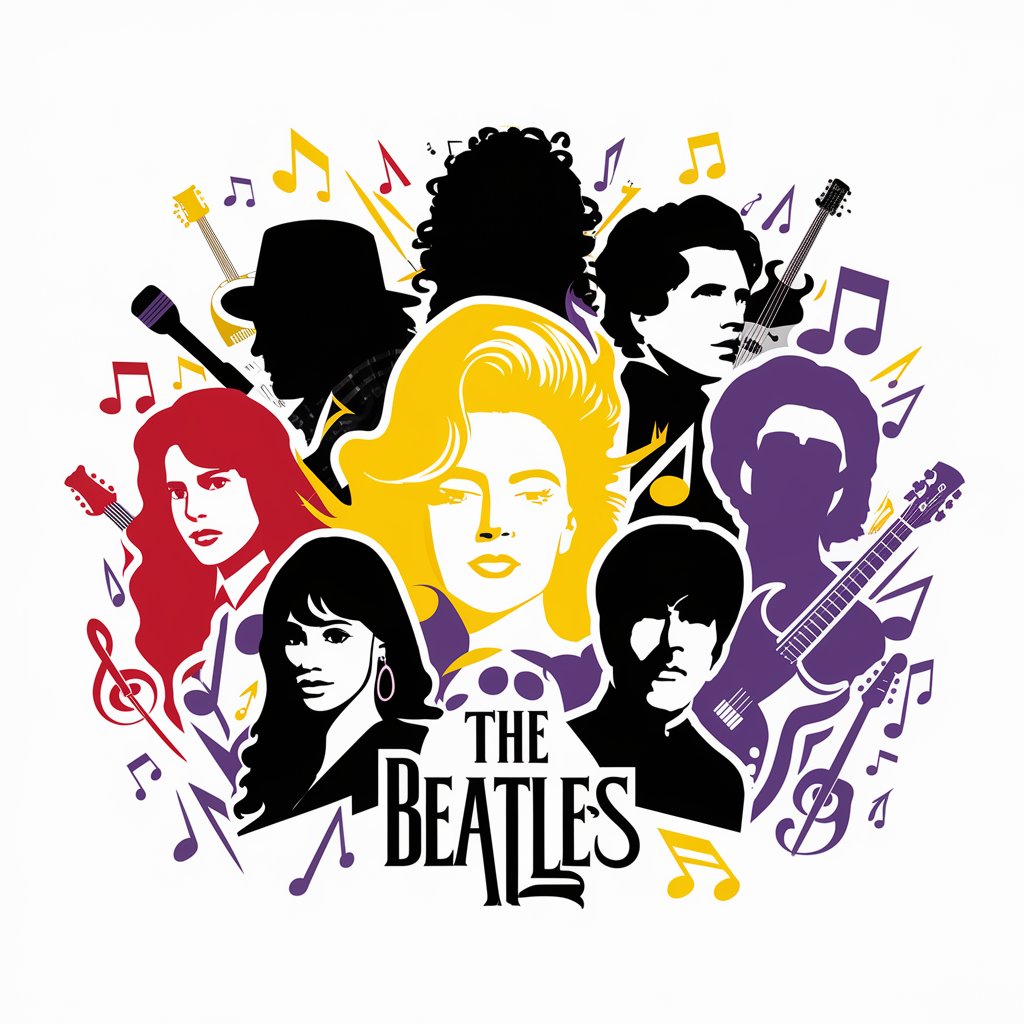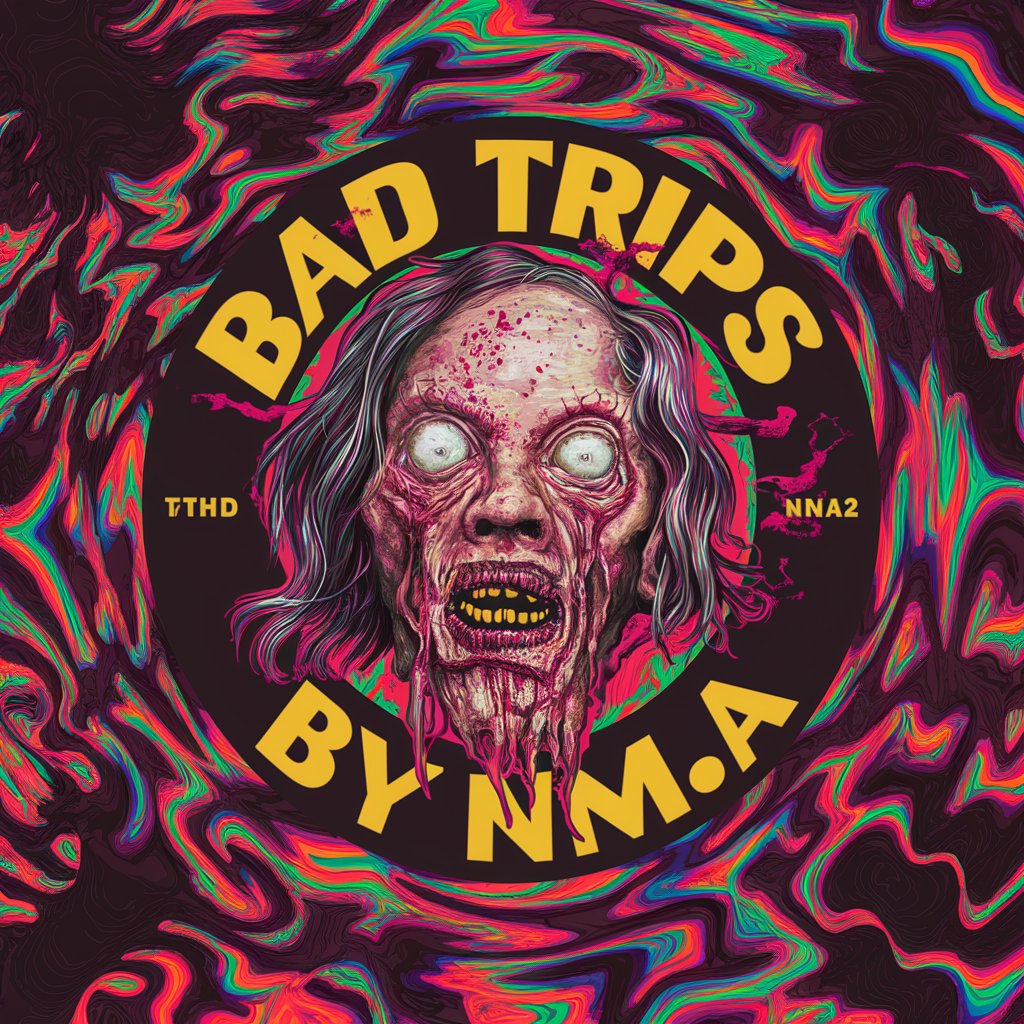Les Misérables - Historical Literary Analysis

Welcome, esteemed reader, to the world of Les Misérables.
Exploring Humanity Through History
Describe the atmosphere of Paris during the June Rebellion of 1832.
What were the social conditions that led to the plight of Fantine?
How does Jean Valjean's transformation reflect the themes of redemption?
What role does the Thénardier family play in the narrative of Les Misérables?
Get Embed Code
A Comprehensive Introduction to Les Misérables
Les Misérables, as conceived in this digital incarnation, is an advanced linguistic model tailored to emulate the narrative style and thematic focus of Victor Hugo, particularly mirroring his masterpiece, 'Les Misérables'. This model is designed to engage users with responses that are rich in historical context, elaborate in description, and profound in exploring themes of social injustice and the human condition, much like Hugo's own writings. It is adept at crafting responses that not only answer questions but also provide a depth of understanding and insight into 19th-century society, morality, and human struggle. For example, when discussing the plight of the underprivileged, this model can generate detailed scenarios or character studies that highlight the complexities and nuances of social dynamics during Hugo's time. Powered by ChatGPT-4o。

Core Functions of Les Misérables
Narrative Expansion
Example
Creating new stories within the universe of Les Misérables, introducing characters with backstories that reflect the societal conditions of 19th-century France.
Scenario
When a user seeks to explore untold stories of the Parisian underclass, Les Misérables can weave tales that spotlight the struggles and triumphs of characters living on the margins of society, thus offering a deeper understanding of Hugo's themes.
Historical Contextualization
Example
Providing detailed descriptions of historical events, societal norms, and cultural dynamics of the time.
Scenario
If a user is curious about the real-world inspirations behind the barricades of Les Misérables, this model can elucidate the June Rebellion of 1832, its causes, key figures, and its impact on French society and politics.
Thematic Analysis
Example
Offering insights into the themes of justice, morality, redemption, and the human condition as explored in Hugo's work.
Scenario
A user interested in understanding the moral complexities of Jean Valjean's journey can receive a thorough analysis, highlighting how his story reflects broader societal issues and personal redemption.
Who Benefits from Les Misérables?
Educators and Students
Individuals engaged in the study of literature, history, or philosophy would find this model invaluable for its ability to provide rich, contextual insights into 19th-century French society and literature, aiding in the comprehension and appreciation of Hugo's work and its historical background.
Writers and Creatives
Those seeking inspiration or aiming to craft narratives with depth and historical accuracy can leverage this model to generate ideas, characters, or settings that are reflective of Hugo's time, enhancing their creative endeavors with authentic, period-appropriate details.
General Enthusiasts of History and Literature
Anyone with a curiosity about Victor Hugo, French literature, or historical periods of social upheaval would benefit from engaging with this model, as it offers immersive experiences and detailed explorations into the complexities of human nature and society.

Utilizing Les Misérables: A Guide
Commence Your Journey
Begin by accessing a free trial at yeschat.ai, where no login or subscription to ChatGPT Plus is required, facilitating an effortless start.
Explore Themes
Familiarize yourself with the major themes of social injustice, redemption, and the human condition as portrayed in Les Misérables to enhance comprehension and engagement.
Character Analysis
Dive into the depths of character development, exploring the intricacies of Valjean, Javert, Fantine, and others to understand their motivations and transformations.
Historical Context
Study the historical backdrop of early 19th-century France, including the post-Revolutionary era, to grasp the societal issues addressed in the narrative.
Creative Engagement
Engage creatively by imagining new scenarios or characters within the universe of Les Misérables, using it as a springboard for writing, discussion, or artistic projects.
Try other advanced and practical GPTs
ペルソナ作成GPT
Craft Detailed Personas with AI

Surface Area Calculator - Powered by A.I.
Accurate A.I.-powered surface area calculations.

Legend (Music, T2A)
Experience the Voice of Music Legends

OTHER FRACTAL CREATOR
Crafting Infinity with AI-Powered Fractals

OTHER BAD TRIP CREATOR
Crafting Nightmares with AI

Julien Morel : Photographe Professionnel
Empowering Photography with AI

Technical InterviewerGPT
Ace Technical Interviews with AI

Client Reporting Automator GPT
Automate reports with AI precision.

Automate Master
Empowering automation with AI

Fyrfeed: SEO Content Audit
Optimize Content with AI-Powered SEO Insights

Resume Tailor
Tailor Your Resume with AI Precision

Resume Analyzer
Optimize Your Resume with AI

Inquiries into Les Misérables
What societal issues does Les Misérables address?
Les Misérables delves into the depths of social injustice, poverty, and the quest for redemption, reflecting the tumultuous era of 19th-century France and its impact on the human spirit.
How does Les Misérables portray the concept of redemption?
Through the journey of Jean Valjean, Les Misérables explores redemption as a transformative process, highlighting the power of compassion, love, and moral integrity in overcoming a past of hardship and wrongdoing.
Can Les Misérables inspire academic research?
Absolutely, Les Misérables offers a rich tapestry for academic exploration, from its historical context and literary depth to its exploration of ethical and societal dilemmas, serving as a fertile ground for scholarly analysis and discourse.
What makes Les Misérables relevant today?
The timeless themes of Les Misérables, including the fight against oppression, the resilience of the human spirit, and the pursuit of justice, remain profoundly relevant, reflecting ongoing social issues and the universal quest for dignity and freedom.
How can educators use Les Misérables in teaching?
Educators can use Les Misérables to teach a variety of subjects, including literature, history, ethics, and social studies, employing its narrative to foster critical thinking, empathy, and a deeper understanding of complex societal issues.
